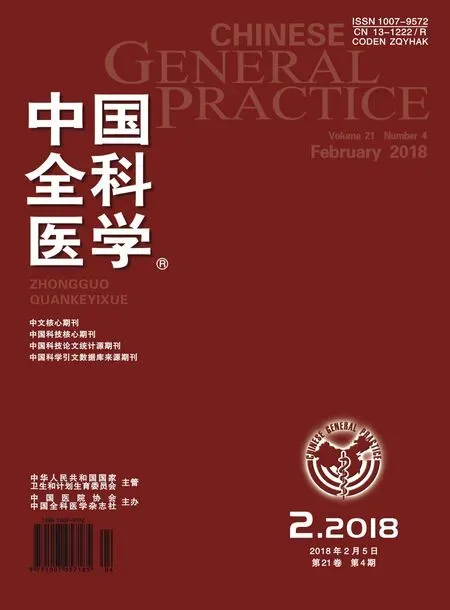《The Medical Republic》案例分享
——发热管理的文化冲突
Leon Piterman,邱珊娇(译),黄文静(译),杨辉(译)

我们生活在一个多元文化的社会,超过四分之一的人口出生在国外,包括我自己。近期的人口普查数据显示,我们的人口组合方式正在发生改变,越来越多来自中国、印度以及中东的移民抵达澳大利亚的海岸。生活在这里的大部分成年人都体验到了移民政策带来的好处,包括文化、美食、时尚等各方面。小的时候,当地餐馆的菜单上只能看到炸鱼、薯条、牛排及鸡蛋,但如今,在离我住所几步远的距离内,就有来自十几个国家、万花筒般多种多样的餐馆和美食可以选择。
移民也给澳大利亚带来了各种各样的健康理念,有的时候这些与病因或疾病管理有关的健康理念,会与传统的西方教学中传授的理念发生冲突。当然,在一个多元文化的社区中,全科医生不可能完全理解每一种文化的健康理念和做法,如被恶魔的眼睛看到、被别人诅咒、被冷风吹着就能使人患病,或者把酒精敷在颈部可以治疗呼吸系统感染、拔罐治疗、各种草药治疗等。
以患者为中心的全科服务,要求全科医生要询问患者的健康理念,用尊重的态度聆听患者的诉求,并根据自身的专业知识以及掌握的诊断依据,为患者提供恰当的治疗意见。不过正如下述这个困扰了我几十年的案例所展示的那样,说起来容易,做起来并非总是那么简单。
克里斯托斯的故事
在我刚从事全科医疗行业不久,当地的一个希腊家庭打电话要求我提供家庭访视服务,因为他们9个月大的婴儿克里斯托斯出现了发热和呕吐症状。我在家门口见到了担心和流泪的患儿母亲,她把我从门口带进卧室。家人为了给克里斯托斯保暖,在他身上盖了好几层毯子。卧室里人很多,有患儿父母,也有患儿的爷爷、奶奶、外公、外婆,他们用充满疑虑的眼神看着我这位年轻的全科医生。
我当时觉得,这是一个展示技术水平的好机会。患儿看起来需要降温,我迅速拿掉了盖在患儿身上的毯子,让家属拿来冷海绵为他降温,同时进行病史采集,并对赤裸的患儿进行体格检查。我注意到在我用微温的海绵给患儿擦身的时候,他的祖父母们面露惊慌,而当我刚做完这些处理时,克里斯托斯就出现了一次抽搐症状。突然间,我觉得我面对的不仅是一个病重的婴儿,还有一屋子会哭泣和尖叫的患儿家属。毫无疑问,他们认为是我的治疗方法引起了孩子抽搐。
抽搐持续了几分钟,但却让人觉得似乎非常漫长。在我来之前,患儿是被喂过奶的,而且肯定呕吐过。但我更担心接下来的呕吐和误吸。当患儿的父亲呼叫救护车时,我在患儿旁边照顾他。抽搐发作结束后,我鼓起勇气给他的家属解释这可能只是单纯的高热惊厥,但必须排除脑膜炎的可能。
救护车将患儿接走后,我打电话给儿童医院的接诊医生,解释了刚才出现的问题,并向她寻求对我困境的同情。但不幸的是,没有人同情我。我备感受创,并且需要找人倾诉。回到诊所后,我的同事都已经下班回家了,幸好还有一位年纪较大的接诊员在,他给我冲了一杯咖啡。但这个时候,一杯尊尼获加或许对我更有用。
我一夜无眠,早上一起床就打电话到医院。获悉患儿腰椎穿刺结果无异常,同时长出了皮疹,是典型的麻疹。为什么?为什么早期诊断如此困难?克里斯托斯在医院住了3 d,出院时医院建议他留在家里并采取隔离措施,由我或另外一位全科医生进行复查,2周后回医院复诊。我有些惶恐地敲开了克里斯托斯的家门。这次,他的祖父母们不在,我想如果他们在的话,是不会允许我进去的。
全科医生和专科医生一样,都害怕误诊、误治,而且会担心被患者及其家属投诉,这是医生的主要压力来源。上述案例中,患儿的健康结局是理想的,但实际上这个案例给我个人带来的影响很大,影响了我之后对患儿的管理方式,特别是那些文化背景不同的患儿。我们都认为医生们提供的是循证医学服务,但当面对另一种文化的相反证据时,循证医学的实践往往会遇到障碍。保持宽容和无偏见,这说起来容易,但做起来难。
译者注:尊尼获加(Johnny Walker),著名的苏格兰威士忌品牌。
志谢:特别感谢原文出版者《The Medical Republic》同意将此文编译后刊登于《中国全科医学》。
We live in a multicultural society with over a quarter of our population, including me, born overseas. Our recent census data also indicates that the population mix is changing with more migrants coming from China, India and the Middle East, to our shores.
Many of us who have lived here most of our adult life have experienced the benefits of migration. These include culture, cuisine and fashion, to mention just a few.
As a child, the only items I witnessed on the menu at the local restaurant were fish and chips or steak and eggs.I am now presented with a kaleidoscope of restaurants and cuisine choices from a dozen countries within a short walk from where I live.
Migrants to Australia also bring with them a plethora of health beliefs. Occasionally these belief systems around the causation of disease or its management will collide with traditional western teaching.
It is, of course, impossible for GPs practising in a multicultural community to understand every culture's health beliefs and practices, such as diseases caused by the evil eye, a curse, a cold wind, and treatments including alcohol compresses to the neck for respiratory infection, cupping and a range of herbal remedies.
Naturally, being patient-centred requires us to inquire about the patient's health beliefs, to listen respectfully, and,at the same time, express an opinion based on our knowledge and the evidence we have for appropriate treatment.
This is not always simple as the case below, which has troubled me for decades, illustrates.
The Story of Christos
Soon after commencing general practice, I was called to the home of a local Greek family worried about fever and vomiting affecting a nine-month old child. I was met at the door by the tearful and worried mother, who ushered me into the bedroom where baby Christos was concealed under a mountain of blankets designed to keep him warm.
The bedroom was crowded with his parents, and two sets of grandparents, looking very suspiciously at this young GP.
Here was an opportunity to apply my craft. The baby needed to be cooled. I quickly removed the blankets and asked for a cold sponge to cool the baby down while I took a history and conducted a physical examination on the now naked child.
I noted the look of horror on the face of the grandparents as I applied a tepid sponge. No sooner had I done this, than Christos had a convulsion. I was suddenly confronted not only with a very sick infant, but also with a room full of crying and screaming family members. There was no doubt in their mind that my treatment had caused the convulsion.
The convulsion lasted several minutes but, of course, it seemed like an eternity. The baby has been given milk before my arrival which he had duly vomited, but I was concerned about further vomiting and aspiration.
I nursed him on the side while his father called the ambulance.
Once the fitting finished, I tried bravely to explain the likelihood that this was simply a febrile convulsion knowing full well that meningitis needed to be excluded. As things settled and the ambulance took over I phoned the admitting officer at the Children's Hospital and explained the nature of the problem and sought sympathy from her about my predicament.
Sadly, none was forthcoming. I felt traumatised and needed to debrief. By the time I returned to the clinic,all my colleagues had gone home. Fortunately, our senior receptionist was still there and offered a coffee. A measure of Johnny Walker might have been more useful.
After a sleepless night, I phoned the hospital. Lumbar puncture was normal. In the meantime, the baby had developed a rash. Typical measles. Why, oh why, is early diagnosis so difficult? Christos spent three days in hospital and was discharged with instructions to remain isolated at home and to be reviewed by me, or another GP, with a follow up at the hospital two weeks later.
It was with some trepidation that I knocked on the door of the family home. On this occasion, the grandparents were not there. I doubt they would have let me in.
GPs, as well as specialists, are haunted by fear of misdiagnosis and mismanagement which, coupled with fear of litigation, are major stressors.
This case, which in fact had a good outcome, had a considerable impact on me and influenced my management of sick children, particularly those from cultural backgrounds different to mine.
We like to think that we practise evidence-based medicine. Doing so in the face of counter evidence from another culture can be confronting.
Remaining tolerant and non-judgmental can be easier said than done.

